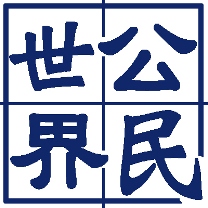Maggie和老外朋友聊到近況,朋友告訴她:“I have been dry for a month.”Maggie心裡想,難道是這些天都沒有下雨,天氣乾爽嗎?正要回應,朋友繼續說:I had a big addiction to wine…(我的酒癮很大。)
Maggie才明白,原來dry不是「乾燥」,而是「戒酒」。
dry這個字其實很有意思。有人會用它來形容meeting很dry,意思是「會議很枯燥」。還有人用它來形容幽默感,dry sense of humor,指「不露聲色的幽默感」,就是講笑話時還一本正經的那種。今天來學學dry這個字的道地用法。
1.I've been dry for a month.
(X)整個月我都覺得很乾。
(O)我戒酒1個月了。
dry除了我們熟悉的「乾、乾燥、乾涸」,還有一個意思,就是「不含酒精的」。例如dry wedding是「不喝酒的婚禮」;dry bar「無酒精酒吧」,美國禁酒的州叫dry state。
dry當「無酒精的」實際的應用,看一例句:
●The restaurant was dry and no liquor was allowed.(這家餐廳是禁酒的,不含酒精的飲料。)
●Kuwait's a dry country.(科威特禁酒。)
dry當「戒酒」也有動詞用法,用片語動詞dry out:
●He checked into the hospital to dry out.(他住進了醫院戒酒。)
●The hospital dried Michael out and sent him home.(醫院幫麥可戒酒後送他回家。)
dry out也有「變乾」的意思,得看情境來定。例如:
●If you don't keep food covered, it dries out.(如果不把食物蓋好,就會變乾。)
2.We did a dry run on our new marketing plan.
(X)我們的新的行銷計畫空轉。(O)我們對新的行銷計畫進行了一次排練。
dry run不是空轉,也不是乾乾地跑步,而是「預演、排練」,其實就是rehearsal,英國人有時會用dummy run,dummy 是「假的」,這裡的run有run through,「走一遍、過一遍」的意味。
●We did a dry run of the experiment.(我們做了這個實驗的排練。)
●After several dry runs, she was ready to give the speech.(反覆練習後,她已經準備好演講了。)
3.We were left high and dry.
(X)我們口乾舌燥。
(O)我們孤立無援;我們不知道怎麼辦才好。
leave someone high and dry,是指「給人帶來麻煩、使人陷入困境」。像是船擱淺在淺礁,無法出航。
●You left me high and dry when you forgot to pick me up at the airport last night.(你昨晚上忘記去機場接我,真是讓我不知怎麼辦才好。)
●They pulled out of the deal at the last minute leaving us high and dry.(他們在最後一刻退出了交易,使我們陷入困境。)
責任編輯:易佳蓉
核稿編輯:李頤欣



